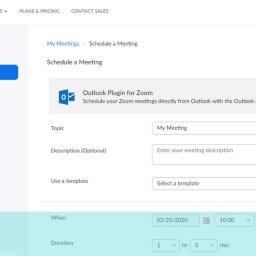
As an established provider of products across different markets you will know how much high-quality, reliable UX research matters. Especially if you have your own in-house research teams.
Scaling your research capability as you grow isn’t always straightforward. Primarily that’s down to the difficulty of finding suitable resource. For example:
- The recruitment market is very volatile, people don’t stay in roles as long as they used to
- There are lots of freelancers and rates can be very high
- Quality of resource in some markets is varied. Particularly in immature markets where there are fewer researchers
Finding good, affordable professional UX researchers can be a challenge!
There can be internal challenges for some organisations too. You might recognise the value of being more customer centric, but if your organisation isn’t particularly mature, that can bring its own challenges. Particularly when it comes to scaling and implementing effective processes.
Generally, demand outstrips supply. Product owners want to get research done but the team isn’t available to do it.
So, you can see the myriad of issues product owners can face when it comes to scaling UX research capability.
In this article we will look at how you can overcome these issues and how you can effectively scale up your UX research capability.
Establishing a customer-centric approach
You can’t underestimate the importance of high-quality research. Products built on unreliable insight are destined to fail.
That’s why as an agency we’ve seen that products developed in a customer-centric way far outperform those that don’t involve the target customer throughout the product localisation and development processes.
The quickest way to ensure inconsistent performance across markets as a product owner is by not understanding the differences between the needs of customers in different markets.
To improve your chances of securing a high-performing product across different markets it helps to develop a roadmap for your UX research function.
Road mapping your UX research
UX research is a necessity to plan your product development process and go-to-market strategy, but first you should plan how you’re going to expand your research function itself. Will you look to expand your in-house team? Will you bring in freelancers as and when required? Are you going to look for a trusted, international UX research agency partner?
How will you scale effectively?
Of course, if you have an in-house team, you can call on your own experience as to whether expanding your team will be an effective strategy, or whether you will encounter some of the pitfalls we outlined at the beginning of this piece.
The same applies if you have experience of working with freelancers or agencies.
It’s important to weigh up your options in relation to the market that you need to research. Then you need to consider the best approach for your organisation and devise a growth strategy. Plan how you will deal with each phase of growth as it happens ahead of time.

Democratising UX research
One option you may want to consider is democratising your UX research to create additional resource.
This is the process of enabling anyone in your organisation to do your UX research, not just professional researchers. Obviously the big plus point of doing this is it opens up a wide range of potential new resource from your wider organisation. It can however lead to some problems if you don’t implement it correctly.
Let’s look at some of the pros and cons and how you can get democratising UX research right if you choose to go down this route.
The benefits of democratising UX research
When done correctly:
- You can get more done much faster
- It can increase job satisfaction
- It can increase harmony throughout the organisation
The first point is pretty clear. If more people are doing the research, in theory you will get more done. It’s important to note though that professional researchers are highly skilled and there’s a lot more complexity to the role than some people in your organisation may think initially. It’s vital then that all the people that are going to partake in the research are well led by professional researchers throughout the process.
In terms of increased job satisfaction, this comes down to the fact that some people in other roles will simply enjoy doing research. It helps them develop new skills whilst doing something different. Not only that, the knowledge they gain about your customers and the new market insight researching provides, will often help them when they are carrying out their usual duties.
Increased harmony is an excellent auxiliary benefit some organisations experience following research democratisation. Every time someone does UX research they learn to appreciate the role of a professional researcher more. This new level of respect for research and professional researchers helps everybody pull towards the ultimate goal – creating a winning product for each market.
The potential pitfalls of democratising UX research
Without proper planning and management, you could find yourself facing the following issues:
- Poor planning – due to a general underestimation of the skills and professional experience needed to research well
- Bad research
- Little accountability
- Lack of clarity and wasted resource
All these can lead to a much bigger issue – an unsuccessful product that you haven’t designed properly to meet the needs of the users in the market.
Bad design nearly always starts with bad research. That’s why you need to leave some of the more complex researching tasks to professionals. Tasks such as developing the research strategy, preparing the right questions and planning an inquiry, for example.
This goes back to our earlier point of making sure you plan your research roadmap. You also need to plan how you’re going to manage your UX research once it starts. You need to make sure each team contains the right people to balance resource, and you need to manage the project and each team within it effectively.
This creates accountability. Someone needs to have absolute responsibility for each aspect of your UX research. This is what gets things done, keeps things on track, and creates cohesive teams. You need to avoid multiple teams doing the same tasks and make people accountable for their specific function, whilst managing everything effectively from above.
Each person’s specific function also needs to match their current ability and skill set. Not only does this give you the best chance of gathering good information, it also limits wasted resources. You don’t want an expert researcher doing simple tasks that others could do. Equally you don’t want someone with little training doing more complex work.
Good planning cures almost all ills. It’s no different when it comes to democratising your UX research.
Bad research to avoid
Getting your planning right backed up by quality management can help you avoid bad research. Which in turn means you will create a better product.
Bad research can stem from a wide variety of errors, such as:
- Doing the wrong type of research. For example, mistakenly using qualitative methods to try and get quantitative data
- Creating weak questions that yield little worthwhile information
- Creating leading questions that invalidate your research
- Engaging with participants incorrectly, for example leading when you should be observing
- Researching people who aren’t in your target market
- Poor data analysis
If you create these problems by democratising your UX research poorly you will get bad data, which you will use to make the wrong decisions and create an unviable product.
That’s why professional researchers are so valuable.
So, there’s some very worthwhile benefits to democratising your research but you’ve got to avoid these potential problems at all costs or you will waste a lot of resource, and worse, fail to create a product that’s right for the market.
Being a successful product owner
As a product owner you want consistent high performance across all markets. This all starts with high quality research in each market and then creating a product for each unique market.
If you don’t tailor your product and your approach for each market, you will have inconsistent performance at best.
You need to know the customer needs and user behaviour in each market, inside out, and then adapt your product appropriately.
To do this there will be times when you need to scale up your UX research activity effectively and on-demand.
Hiring a UX research agency
If you don’t have the in-house resource to call on, or the experience to scale up your own research efforts effectively, consider hiring a UX research agency.
At UX24/7 we provide UX research services that cover each stage of your product lifecycle. We can help you understand a new market, create a high-performing product for that market, and accelerate your growth. We can take the whole job of scaling up your research off your hands.
We’re a trusted partner with global capability and we’ve helped brands such as eBay, Facebook, Indeed, Shopify and Samsung develop internationally.
For an initial consultation, email us at hello@ux247.com.
















